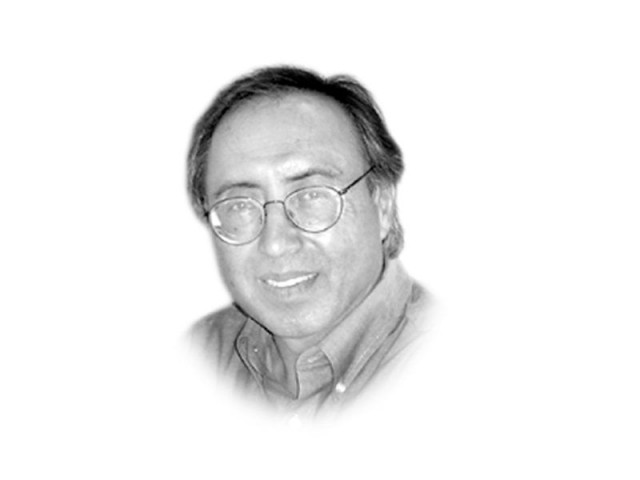A rudderless ship
For about a year or so, the country seems to have lost stability, order and a sense of direction

The writer is a professor of political science at LUMS, Lahore. His recent book is Imagining Pakistan: Modernism, State and the Politics of Islamic Revival (Lexington Books, 2017)
For the majority of the party leaders, loyalty to the rulers has been more important, as it pays off, than the truth or the conscience. “We have done nothing wrong” remains the old mantra of all corrupt leaders and their paid defenders. In an age of open media and frank discussion — a big change in Pakistan — old means of politics of patronage and hiring minions with abusive tongues against the opponents has proved to be a bad business with diminishing returns.
With the passage of time, the ‘honesty’ narrative of the Sharif family has lost credibility. The more sycophants speak about their master’s ‘honesty’, the more they make a laughing stock of themselves. The public distrust of this ruling family for the last three decades has come crashing down with the damning verdict of the Supreme Court. Such a decision, after a long legal battle, would have sealed the political fate of any political leader. But this is a very different country where the rule of law is only for the poor and the marginalised. The biggest defence the corrupt Pakistani ruling party leaders have invented is this: “we are being victimised” and there are some “invisible” hands working behind the judiciary or any other department of the government that has ever placed a firm hand on any one of the culprits. Which is the party or leader when even caught red-handed, and toe-to-head in corruption, not used the state agencies, public funds, media and bribes to hush up critics, and parallel to this, employ the mythology of ‘conspiracy’?
At the moment, Pakistan is actually without effective governance, education, health, agriculture and many other vital sectors of society. Nowhere in the world, can an ailing finance minister facing corruption cases stay in office. Prime Minister Shahid Khaqan Abbasi, handpicked by Nawaz, has no will or authority to take any decision about the members of his cabinet, even if he wants to get rid of Ishaq Dar who by all sensible accounts has messed up Pakistan’s economy. He has failed, so far, to act independently on vital national issues, and there are no signs he would do so in the remaining period of the government.
Parliament is one institution that could theoretically pull Pakistan out of the prevailing instability and uncertainty, as the political system rests on its ‘sovereignty’. Frankly speaking, this core national institution has been a hostage in the hands of dynastic political parties. Its autonomy or sovereignty rests primarily in the autonomy and independence of its members, which is compromised by absence of democracy within the political parties. As the ruling dynasties run the parties as feudal cliques or political ‘business corporations’, the ‘parliamentarians’ prefer to align with the prospective winners, and stay with them to benefit through the political patronage with next elections in mind. A pragmatic interest in staying loyal to the one in power keeps them quiet.
The chaos in politics means chaos all around — in economy, society and governance. With popular frustration on the rise, it is bound to spill over into the streets and produce a major political crisis.
Tailpiece: Rudderless ships are prone to accidents.
Published in The Express Tribune, November 8th, 2017.
Like Opinion & Editorial on Facebook, follow @ETOpEd on Twitter to receive all updates on all our daily pieces.















COMMENTS
Comments are moderated and generally will be posted if they are on-topic and not abusive.
For more information, please see our Comments FAQ